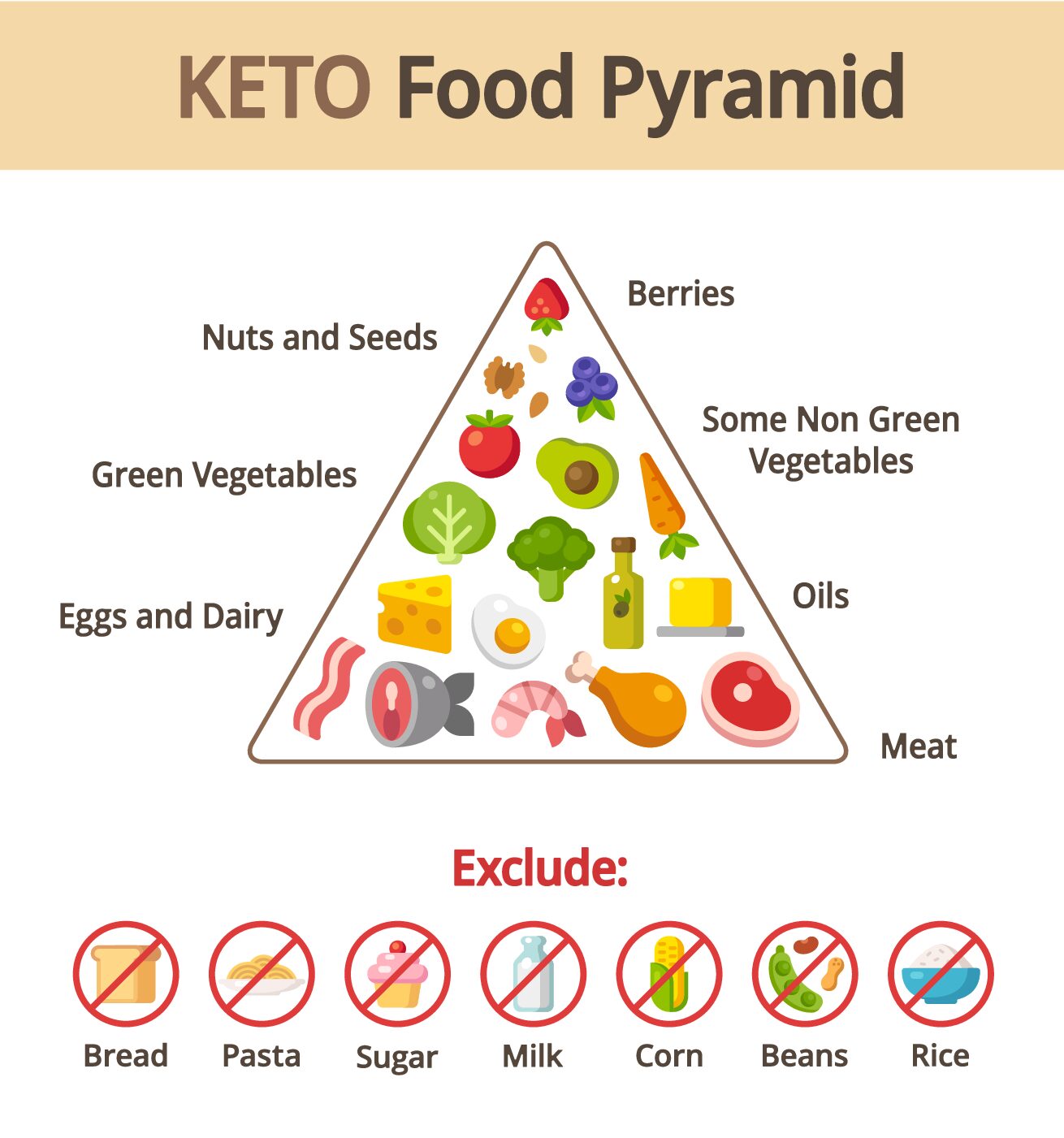Exploring the Benefits of Ketogenic Nutrition for Brain Health
Recently, the spotlight has shifted towards ketogenic nutrition as an important strategy to enhance the effectiveness of traditional treatments for a range of medical conditions. Research and public interest is growing as the keto diet continues to positively impact outcomes for the following neurological conditions:
- Brain Tumors
- Epilepsy
- Depression
- Alzheimer’s
- Parkinson’s
- ALS
- Autism
What do these diverse conditions have in common? They have a shared impact on the nervous system. The ketogenic diet offers promising therapeutic benefits for individuals grappling with neurological challenges. 2% of your body weight is taken up by your brain, but it consumes the most energy in your body. Both glucose and ketones can be a source of energy for your brain, but ketones can meet up to 60% of your brain’s total energy needs! Ketogenic nutrition creates biochemical pathway changes that positively impact brain functions by:
- Regulating the equilibrium between pro-excitatory and inhibitory neurotransmitters in your brain.
- Influencing inflammation and the composition of the gut microbiome to improve signaling to and from your brain.
- Improving antioxidant activity for fighting oxidative stress throughout your body.
The ketogenic diet is characterized by high-fat, adequate protein and low-carbohydrates. Within this framework several variations exist, such as intermittent fasting, modified Atkins and MCT-based approaches. Consulting experienced practitioners who are knowledgeable about keto can help determine the most suitable variation based on individual lifestyle and health conditions. Additionally, supporting elements like nutritional supplements, electrolyte management, hydration and physical activity optimize the efficacy of this dietary regimen and help alleviate adverse symptoms that you may experience. Supplements like magnesium and fiber are particularly valuable in this context.
The roots of the ketogenic diet date back to the 1920s, when it was introduced at the Mayo Clinic as a method to effectively manage epilepsy. Its popularity waned with the advent of the first anti-seizure medications. By combining medication AND nutrition, we are able to better support these patients and families in managing their epilepsy!
Ketogenic nutrition, like fasting, operates on the principle of inducing a state of ketosis in the body, where fats are utilized as the primary source of energy instead of carbohydrates. This process mitigates inflammatory responses and reduces bodily stress, thereby regulating brain activity. When carbohydrates in your diet are insufficient, your brain acquires energy through ketogenesis. This shift of brain metabolism from glucose to ketones requires you to adapt to this new process. Once it adapts, ketones can give your brain the majority of the energy required for proper functioning. While your body is trying to adapt, you may have to try out a few different styles of fasting or keto diets. Listen to your body and ask yourself some clarifying questions:
- Does my body feel “lighter” and my brain more “clear?”
- Is this becoming stressful to maintain? Take a step back and start with shorter periods of fasting or one keto meal at a time.
Remember that this type of diet can be temporary, as a stepping stone to develop better habits by being more mindful of what you eat, when you eat and how your body feels after you eat.
For those curious about practical implementation, a keto-friendly menu from Whole Foods can serve as inspiration. This menu offers a variety of nutritious options, including egg bites, meat and seafood, protein shakes, stuffed veggies and yogurt bowls. Whether embarking on a short-term trial or committing to a longer journey, it’s essential to pay attention to your body’s signals and mental well-being. Adapting to this dietary shift takes time, and overly strict approaches can lead to giving up prematurely before reaping potential benefits.
Wishing you the best on your journey! Stay connected with us by subscribing to our newsletter and following us on Facebook, Instagram or LinkedIn!
Thank you for being part of our community where we share a passion for aging gracefully and saving lives through cancer navigation! #Let’sNavigateCancerTogether.

